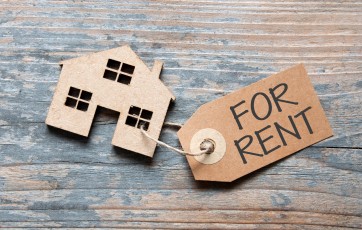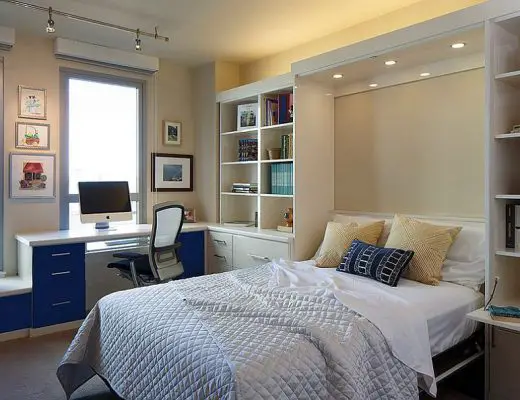
CommonCentsMom.com is advertiser-supported: we may earn compensation from the products and offers mentioned in this article. However, any expressed opinions are our own and aren't influenced by compensation. The contents of the CommonCentsMom.com website, such as text, graphics, images, and other material contained on this site (“Content”) are for informational purposes only. The Content is not intended to be a substitute for professional financial or legal advice. Always seek the advice of your Financial Advisor, CPA and Lawyer with any questions you may have regarding your situation. Never disregard professional advice or delay in seeking it because of something you have read on this website!
Renting out your home can be a stressful time, but it doesn’t have to be. With some preparation and forward planning, you can make sure that everything goes smoothly for both you and your tenant. Here are some of the things you should know before renting out your home:
Compare your home to other similar properties in your area.
You should also compare your home to other similar properties in your area. This will help you determine whether you have a good deal on rent, or if you’re leaving money on the table. To do this, look at how much other similar properties are renting for and what they are selling for. You can also see how long similar properties have been on the market. If they’ve been up there for a while without selling or getting rented, it could be an indication that those homes aren’t worth as much as they once were (or maybe even worth less than what you’re charging).
Be honest about the condition of your property.
Honesty goes a long way. And people have become smart. Thinking you can scam your way into getting high rent is a bad ideas. Make a checklist of everything that needs to be done, and set aside money for those repairs in advance so you can hire a reliable tradesman immediately if something breaks down during the period when renters are living in it.
Get good relationships with all the essential contractors: plumbers, electricians, carpenters, etc., who will perform regular inspections/repairs on your house before moving out has been agreed upon by both parties (with reference to clause 12b). This is a wise thing to do as it means that when something does break down during this time period (which happens very often), then these contractors will be able to fix these problems quickly without any hassle and without costing much money for them either!
Decide what type of contract you want (fixed-term, assured shorthold tenancy, etc.).
You’ll need to decide what type of contract you want:
- Fixed-term contracts are for a specific period of time. For example, you might rent your house for one year.
- Assured shorthold tenancies (ASTs) can last for six months or longer. An AST is often used when renting out an entire property, and it usually ends after six months, with another six-month extension being possible if both you and your tenant agree.
- You can also choose to rent your property on a periodic basis—this means that you can change the rent and other terms of the contract whenever you want during its term.
Create a checklist of maintenance tasks that need to be completed prior to the tenant’s arrival.
Before you let anyone move in, you’ll want to make sure that your property is in tip-top shape. This is a great opportunity for you to get an idea of what needs doing around the house, and what kind of problems might be lurking under the surface. Here are two examples of things you should have on your maintenance checklist:
- Check all appliances: If it’s possible, check each appliance (ovens, hobs, washer/dryers, etc.) to see if anything needs repairing or replacing before your tenant moves in.
- Clean all surfaces: If there are unfinished jobs left by previous tenants, now is your chance to finish them off so that everything feels fresh and clean for when they move into their new home.
Consider taking out insurance to protect yourself against damage or theft.
If you’re about to rent your house for the first time, you may want to consider taking out insurance to protect yourself against damage or theft.
In terms of pricing, the average cost of a renters insurance policy is $15.50/month, but depending on what kind of coverage you need and how much risk is involved with your rental property, some policies can be as low as $5/month.
Be sure to think about what kind of damage you need protection against—you might want to protect against natural disasters only.
The cost of a renters insurance policy is significantly lower than the average for homeowners insurance—and it provides protection against many things, including fire, smoke damage, lightning strikes, and burglaries.
If repairs are needed, be ready to contact a reputable tradesman quickly
Before you call the tradesman, get a quote from him. Ask him to include the cost of materials, labour, and any other extra costs that might be related to an issue in your house. If there’s something wrong with your plumbing, for example, will he need to replace some pipes? Will he repair the leaks or replace all of them? That way, you can make sure all the costs are clear before committing yourself to anything.
Once you’ve got a written quote from the tradesman and it seems fair enough (or if it doesn’t), then ask for a contract so that both sides know what’s expected of each other and how much they’ll pay for it all. You don’t want any surprises later on down the line when something goes wrong again!
Take photos of your property before allowing tenants to move in and compare them once they leave.
While this may seem like a no-brainer, it’s important to take photos of the property before you allow anyone to live there. Even if you’re only renting out one room or a small area of your house, it’s important that prospective tenants don’t have access to any shared space until they’ve paid their deposit and signed the tenancy agreement with you.
Once they’ve moved out, take another set of photos so that you can see what changes have been made while they were living there—and whether or not those changes were authorized by yourself or your landlord insurance policy (if applicable).
Conclusion
So, if you’re thinking about becoming a landlord, prepare yourself for all the ins and outs. It can be stressful at times, but it can also be very rewarding. It’s an exciting time when you move into a new house or apartment—but it’s also important to consider what happens next! If you have this checklist in mind before renting out your property, then you should be ready for anything that comes your way.






